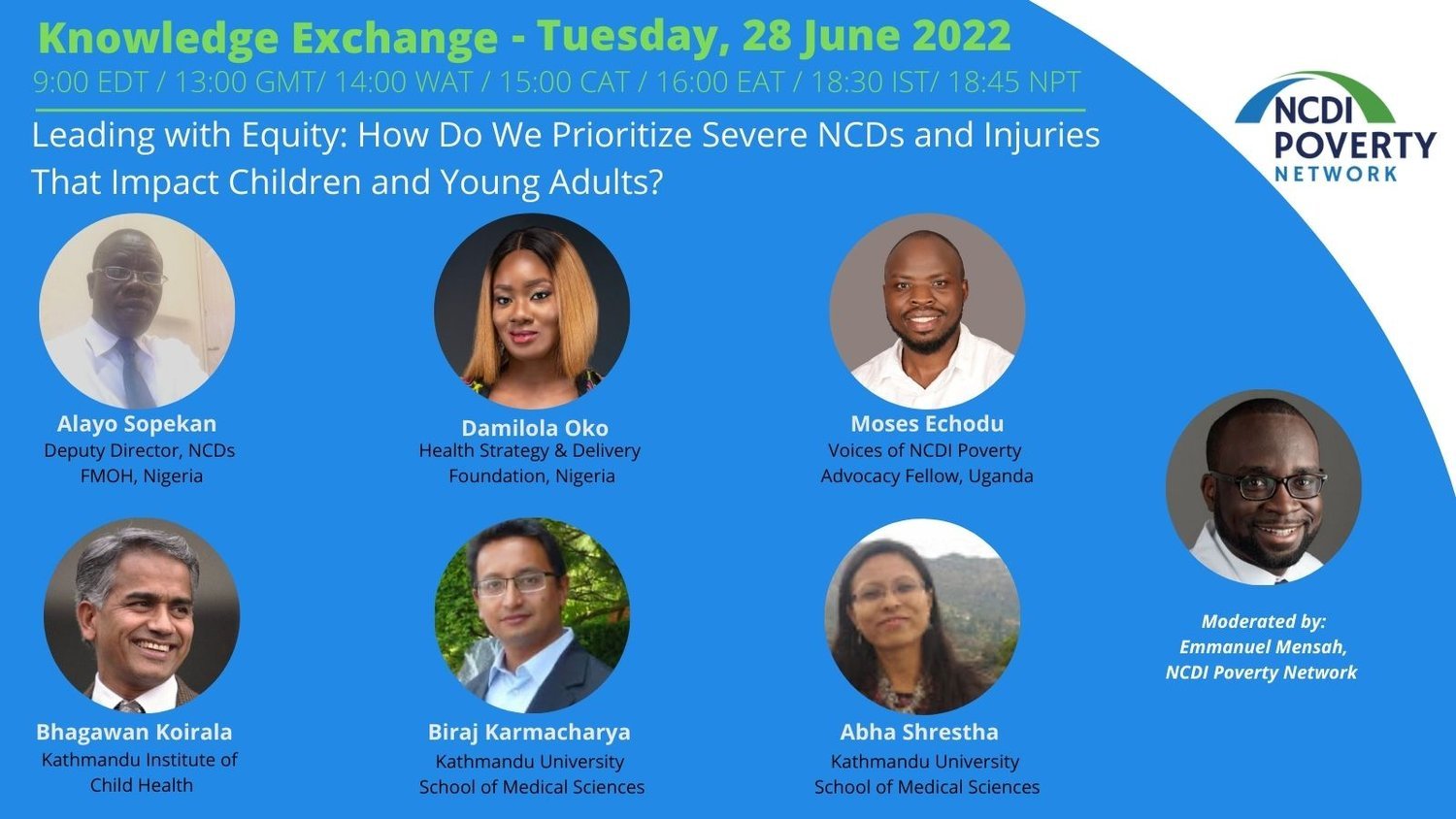Knowledge Exchange Focuses on How to Prioritize Severe NCDs and Injuries that Impact Children and Young Adults
The NCDI Poverty Network Secretariat hosted the second installment of the Network’s new Knowledge Exchange series on 28 June 2022. The discussion focused on how countries can prioritize severe NCDs and injuries that impact children and young adults living in extreme poverty.
A recording of the most recent Knowledge Exchange can be viewed here.
The webinar was facilitated so the audience could ask questions of the invited speakers, who included: Dr. Alayo Sopekan of the Nigeria NCDI Poverty Commission and Nigeria Federal Ministry of Health; Dr. Damilola Oko of the Nigeria NCDI Poverty Commission and Health Strategy and Delivery Foundation; Dr. Bhagawan Koirala of the Nepal NCDI Poverty Commission and Kathmandu Institute of Child Health; Dr. Biraj Karmacharya and Dr. Abha Strestha, both of Nepal NCDI Poverty Commission; Kathmandu University School of Medical Sciences, and Voices of NCDI Poverty Advocacy Fellow Moses Echodu.
The panelists discussed why it is often challenging to incorporate prevention, diagnosis, and especially treatment of severe NCDs and injuries in national health system plans, and shared lessons about tools and approaches they have used to successfully prioritize severe NCDs and injuries nationally.
The Knowledge Exchange series provides a forum for members of national NCDI Poverty Commissions, people living with noncommunicable diseases and injuries, and technical, policy, and advocacy experts who are members or supporters of the NCDI Poverty Network to share experiences and discuss how to best address the burden of severe NCDIs that cause 560,000 avoidable deaths every year before the age of 40 among the poorest billion.
French and English simultaneous interpretation is offered at Knowledge Exchange events to facilitate participation from around the world.
The next meeting of the Knowledge Exchange series will be held on 8 June.

